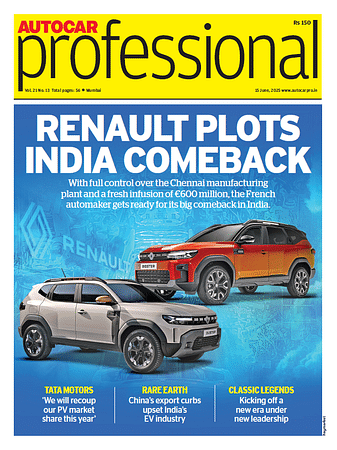Rare Earth Export Curbs from China ‘Nuanced, Not Alarming': Mahindra's Rajesh Jejurikar
According to Jejurikar, the Chinese government's intention is not to block rare metal usage but to track their destination and application.
As global industries, including the automotive sector, face increasing uncertainty due to China's tightened control over rare earth metal exports, Indian automakers are keeping a close watch on how this might affect their supply chains. Rajesh Jejurikar, Executive Director and CEO of Mahindra & Mahindra’s Auto and Farm Sector, offered a grounded perspective on the issue, calling it "nuanced" rather than immediately alarming.
Rare earth elements—used in everything from electric vehicle motors to smartphones and defense technologies—are critical to modern manufacturing. China dominates this market, accounting for over 80% of the global supply. Recently, the Chinese government introduced new rules for exporting these materials, requiring what’s known as an "end-use certification" when the metals are sold in raw form.
Jejurikar, speaking during Mahindra’s quarterly results analyst briefing on Monday, explained the core of the issue in simple terms: “The intention is not to stop rare metal usage in the automotive industry or any other related industries. Essentially, the Chinese government is trying to trace the destination and application of rare earth exports.” If these materials are already built into a component—like a magnet in a motor—the export restrictions are minimal. However, if they’re being exported in raw form, the buyer must declare their intended use and obtain formal approval.
That’s where the current complication lies. The process of obtaining this certification is unclear and varies depending on the product and the country involved. "I am talking about the rare metal trade between China and the US—that's a different dimension,” Jejurikar noted. “For India, they basically want to restrict end use to prevent it from going into the consumer segment, because that’s how it is categorized.”
This regulatory opacity has left many manufacturers in a holding pattern. Jejurikar added that fortunately M&M is coping for now by relying on stockpiled components that already contain the necessary rare earth metals. "Right now, we are well covered by the inventory of each of these components. Hopefully, by the time we exhaust them, the issue of how to obtain end-use certification for the few parts that aren’t covered will be clarified," the top executive added.
As India attempts to localize more of its supply chain and reduce dependency on Chinese imports, these developments pose both a challenge and an opportunity to invest in alternative sourcing and recycling technologies.
RELATED ARTICLES
Ather Energy to Launch Battery as a Service (BaaS) Model for e2Ws
The electric two-wheeler maker, which targets to double its retail footprint to over 750 stores this year, is also worki...
Michelin India Opens Tyres & Services Store in Vijayawada in Partnership with Sanghvi Car Shoppe
Located on MG Road, the new outlet expands Michelin’s retail footprint in South India, offering tyre services and diagno...
Tata Motors Announces Prices of Harrier.ev Quad Wheel Drive, Starting at ₹28.99 Lakh
Harrier.ev becomes India’s most powerful homegrown electric SUV with dual-motor AWD, 5-star Bharat NCAP rating, and 627 ...





 05 May 2025
05 May 2025
 2316 Views
2316 Views





 Kiran Murali
Kiran Murali


 Sarthak Mahajan
Sarthak Mahajan


